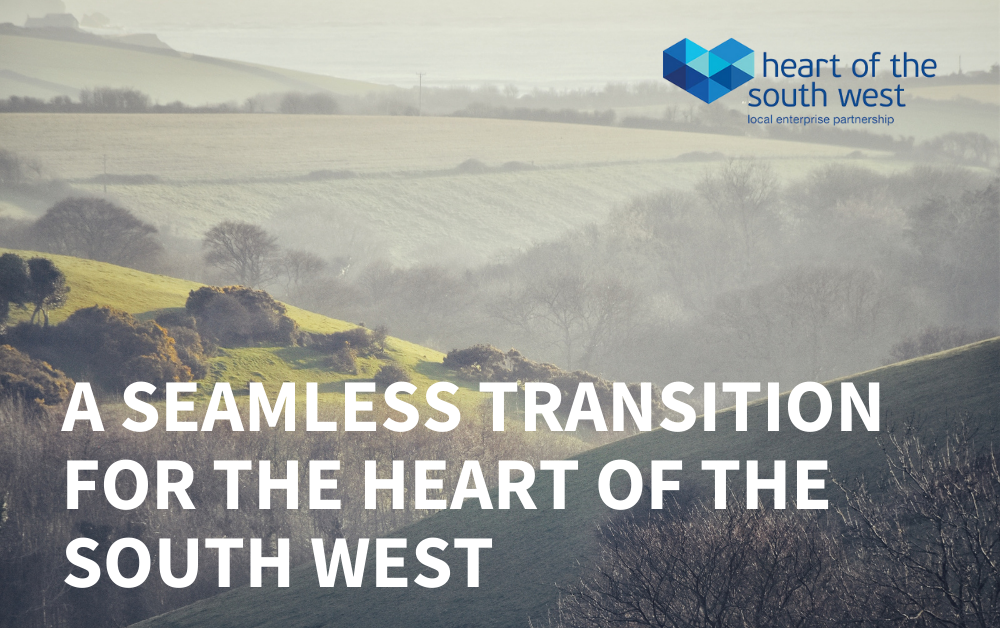Blog written by David Ralph, CEO of the Heart of the South West LEP
The LEP’s Board meeting last week provided an opportunity to review the transition of LEP functions to upper-tier authorities. I wanted to share some thoughts and insights regarding progress so far, and the path that lies ahead.
This summer, we received confirmation from the Government that core funding for LEPs will cease from April 2024, and we are now entering a period of gradual transition, where we will carefully pass on our functions to upper-tier local authorities.
By the end of November, local areas, including ourselves, are required to develop indicative transition plans. These plans will encompass various aspects, including strategic economic planning, inward investment, business engagement, and Government programs like Growth Hubs, Careers Hubs, and Digital Skill Partnerships that currently fall under the LEP’s purview.
While the Government has emphasised an orderly transition and the continuity of services, they have also promised further local guidance, which we anticipate receiving sooner than initially expected.
Our transition journey is indirectly connected to the broader devolution conversation. In some regions, like Manchester and the West Midlands, where devolution deals are already well underway, integrating LEP functions into these structures is relatively straightforward. In others, where devolution deals align with LEP geographies, the transition primarily involves integration. And then there are areas where there is currently no flightpath to a devolution deal. In many of these areas, LEPs will continue to operate, adapting to changing geographies and circumstances.
Many LEP Boards will continue their activities next year as the transition arrangements are put into action, albeit with powers shifting to local councils. Over time, these Boards may gradually evolve or be integrated into longer-term, potentially devolution-based, economic boards. We are not yet clear how this will be delivered across the Heart of the South West area, but could weill split into a Somerset/Devon model.
Our commitment to an orderly transition is unwavering, and we’re fully dedicated to working closely with our local authorities in achieving this as quickly as possible. The Great South West initiative, covering Cornwall, Devon, Dorset, Somerset and the Isles of Scilly, also provides a platform for us to continue advancing our shared regional goals collaboratively.
As we look ahead, we remain optimistic about the opportunities that lie before us. Change often brings innovation and growth, and we’re excited to embrace this new chapter in our journey. Together, we’ll continue to shape a brighter, greener, more prosperous future for the Heart of the South West.


